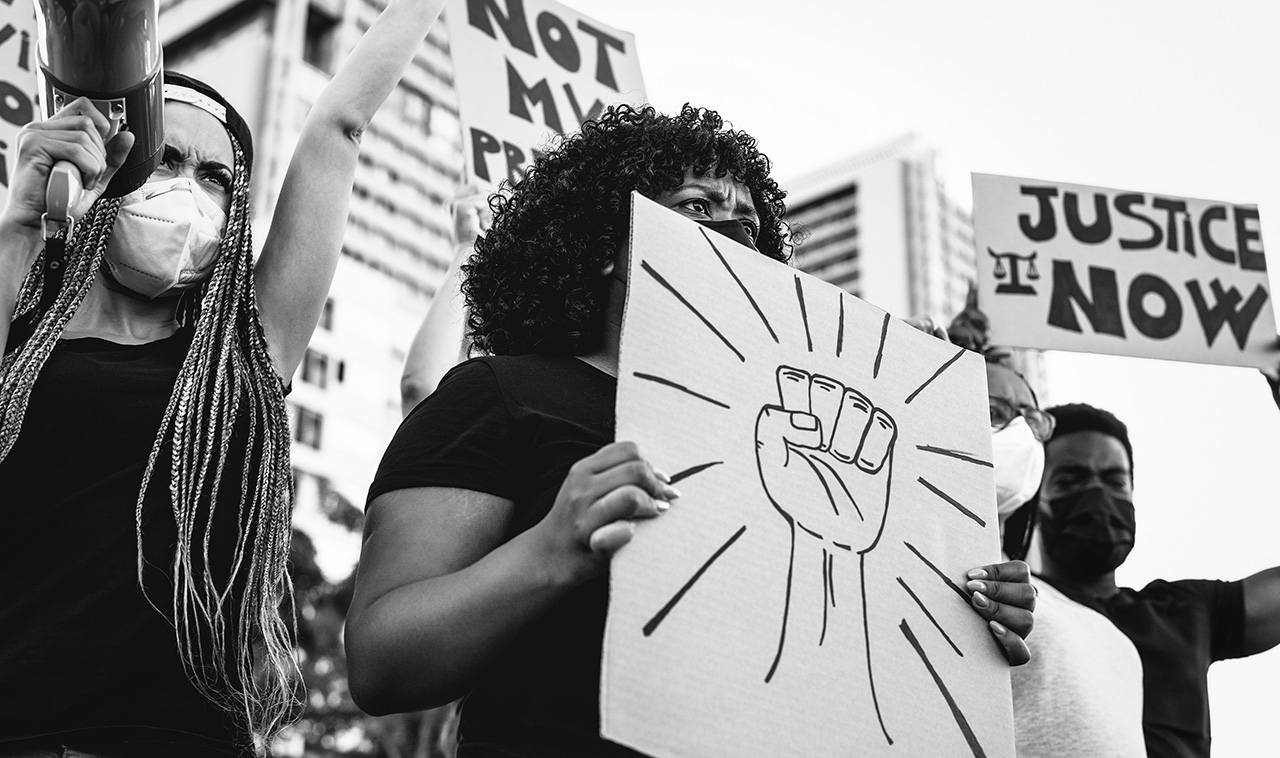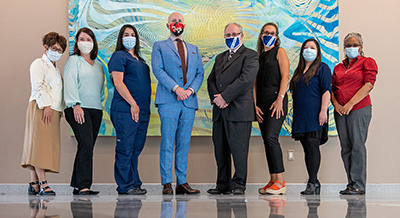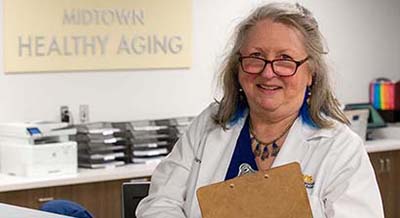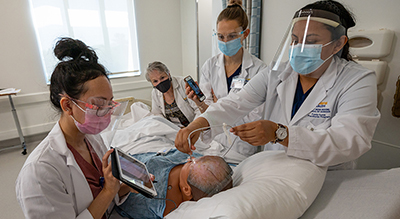June 2020: COVID-19 gripped the world; George Floyd died at the hands of a Minneapolis police officer; and calls to end systemic racism resounded across the country.
Two months later, the 11 nurses in the inaugural cohort of the Betty Irene Moore Fellowship for Nurse Leaders and Innovators gathered for a virtual convocation to kick off their three-year program. They brought their experiences of those realities with them.
“We came into this program at a difficult time in our society. It was stressful. But in our first week, to hear the voices of my cohort and fellowship leaders that we would make anti-racism a priority in what we do, it encouraged me both personally and professionally,” recalls Schenita Davis Randolph, fellow and associate professor at Duke University School of Nursing.
“One of the main commonalities we recognized early on was that all our research focuses on health equity. That set the stage for some difficult and thought-provoking discussions,” adds Dawn M. Aycock, fellow and director of the Doctor of Philosophy program in the School of Nursing at Georgia State University.
While the fellows’ professional research focuses on health equity, health promotion in underserved communities and includes communities of color in nursing research, leaders of the program took this unifying goal a step further. They hosted an anti-racism training for the fellows, staff and faculty of the national program office. Cultures Connecting led two three-hour session in September and November. Every fellow and team member attended.
“The fellowship launched at a time of deep pain for many, with the multiplying effects of the pandemic, health inequity and social injustice. This context enabled deeper discussions sooner in a group just forming,” explains Heather M. Young, national program director. “I am humbled by both the urgency and intensity of need for self-examination and reflection leading to action that dismantles structural racism.”
The group discussed how to have conversations about race. They gained insight into the power of words, regardless of intent and the subtle ways racism expresses in our organizations. They also gained awareness of their own assumptions about human behavior, values, biases and preconceived notions in a quest to achieve social justice.
“As someone who has been engaged in diversity, equity and inclusion work for more than a decade, I’ve often experienced push back or indifference to this work. To see the commitment and buy in across the board was personally cathartic and affirming,” says Monica Esqueda, program manager. “Having a space and community to come together and support one another was critical for both for the success of the fellowship and more importantly, the well-being of all fellowship stakeholders.”
These ideas continue to influence the curriculum of the fellowship. The value of participating in anti-racist training together was undeniable for the first fellows. Anti-racism training continued as a foundational element in the first year.
“All individuals and communities should be able to achieve their optimal health but systemic racism and implicit bias can cause health care providers to act as barriers for their patients to receive equitable and appropriate care,” explains M. Rebecca O’Connor, fellow and associate professor at the University of Washington School of Nursing.
“My fellowship project aims to provide future nurses and nurse practitioners with the awareness and skills to mitigate the impact of their personal attitudes, beliefs and biases on the care they provide.”
“I believe our program-wide commitment to social justice and to promoting equity and inclusion will further our goals of health equity,” Young adds. “These difficult experiences and the lessons we learn together will position the fellows as nurse leaders and innovators who profoundly impact our profession and positively affect the lives of the diverse individuals, families and communities we serve.”






